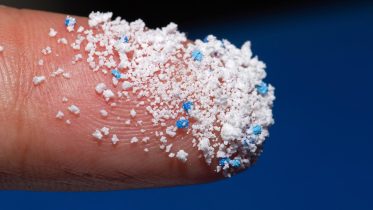
Nanoplastics
Microplastics are fragments of any type of plastic less than 5 mm (0.20 in) in length, according to the U.S. National Oceanic and Atmospheric Administration (NOAA) and the European Chemicals Agency.

Microplastics are fragments of any type of plastic less than 5 mm (0.20 in) in length, according to the U.S. National Oceanic and Atmospheric Administration (NOAA) and the European Chemicals Agency.